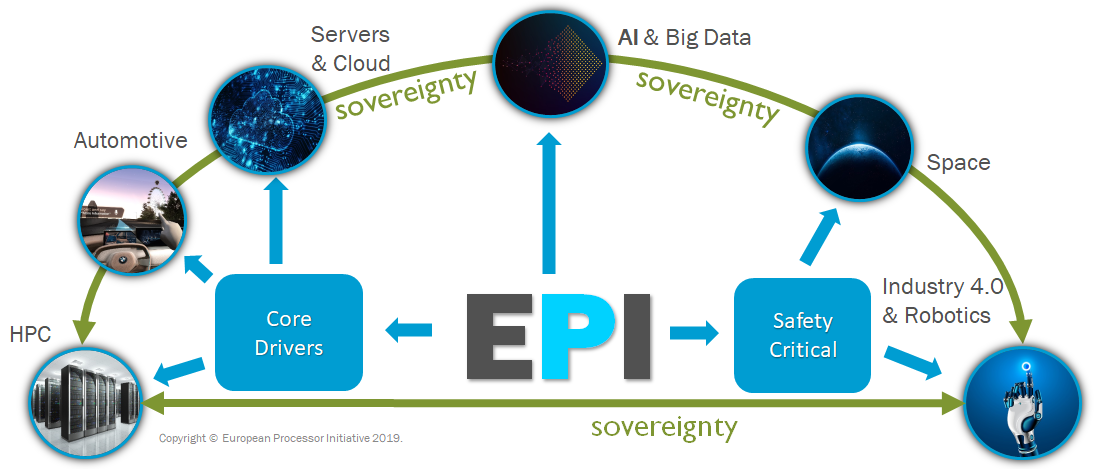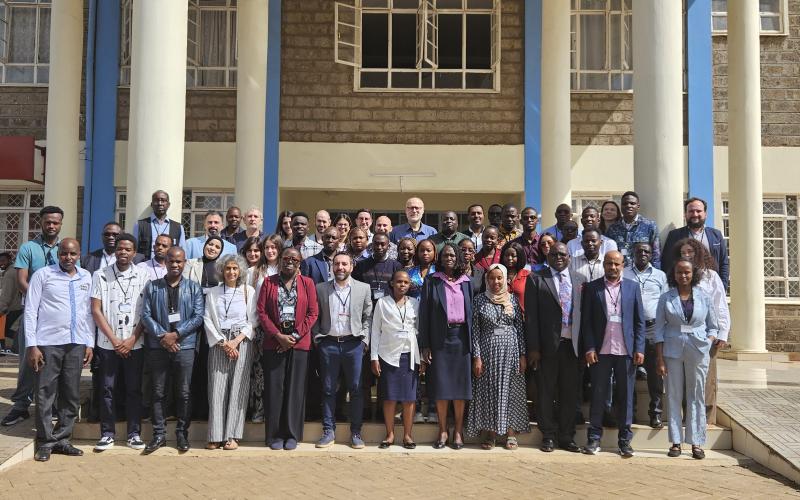In questi giorni il team di bioingegneri composto da Arti Ahluwalia, Carmelo De Maria e Chiara Belmonte si trova a Nairobi per tenere un corso intensivo nell'ambito del progetto Afra Moya, di cui il...
Leggi tuttoIntegrated & Embedded Circuits & Systems Lab

In the I-CAS lab are carried out research & technology transfer activities in the following 3 fields.
1. Integrated Circuits (ICs) The research is focused on design, prototyping and test of high performance ICs with Standard-cells digital VLSI flow and Full-custom mixed/RF ASIC design flow in ultra-scaled CMOS (down to 7 nm) and FPGA technologies and in high-frequency or high-voltage ones such as HVMOS by AMS and BCD by ST, SiGe BiCMOS by IHP, iSiPP50 silicon-photonics and DARE by IMEC. Recent designs are the crypto-security accelerators in the 7nm processors and accelerators of the H2020 European Processor Initiative, a 48 V switched-cap DC/DC converter in the Athenis3D FP7 project, a 10 Gbps Mach Zehnder Modulator driver and SerDes ICs, both rad-hard up to 800 MRad, and a silicon photonics Mach Zehnder Modulator in the ISHTAR and Phos4Brain projects. These activities are carried out in collaboration with the CERN, INFN, IMEC, SSSA-TECIP and with the Wireless Electronics & Microwaves lab and the Electronic Systems Lab of DII.
2. Embedded Circuits and Systems The research is focused on design, prototyping and test of high performance HW/SW embedded systems based on FPSoC technology from Xilinx/Altera, or programmable cores (Raspberry Pi 3) or GPU-based computing platforms. Recent designs are a video smoke/fire detection system for smart cities and intelligent transport system, a crypto-security accelerator for industrial IoT and automotive systems, radar and camera and ultrasonic sensor processing and fusion systems for machine perception and assisted/autonomous driving (ADAS), machine learning and DNN accelerators for machine perception. These activities are carried out in collaboration with Kalray, Atos, CEA, Provenrun, Infineon, BMW, Elektrobit in H2020 European Processor Initiative, Solari in POR FSE project, Intel under a donation program, Magneti Marelli and with the Electronic Systems Lab of DII.
3. System Integration The research is focused on the integration of systems for electrified & connected mobility, IoT for smart agriculture and industry 4.0, and e-health applications. Collaborations are on-going with MIT (under MIT-UNIPI seed fund) and Halden University in Norway for electrified mobility, with Ingeniars and GPI for e-health under the AirCardio POR FESR project, with PPC in POR FSE project for smart agriculture, with the Electronic Systems Lab and Sustainable Electronics for Mobility and Energy Systems lab and Crosslab Industrial IoT of DII. The I-CAS lab is at the core of the organization of the Summer School Enabling Technologies for Industrial IoT.

People: Sergio Saponara (coordinator), Bruno Neri, Luca Fanucci, Daniele Rossi, Massimiliano Donati (RTD). PhD of the I-CAS lab are involved with the PhD program in Information Engineering at University of Pisa and in Smart Industry in cooperation between University of Pisa, Florence and Siena
Projects: H2020 European Processor Initiative, EFEST (Regione Toscana), AOCMA (Regione Toscana), seed-fund (MIT-UNIPI), AirCardio (Regione Toscana), E-TEAM, ISHTAR, INFN Phos4Brain, FP7 Athenis3D
Lab Equipment: The lab is equipped with several CAD workstation positions, test stations and soldering stations. Main EDA-tools for IC and PCB designs, from Synopsys, Cadence, Mentor, are available through Europractice as well as High Level Synthesis and FPGA tools for Xilinx/Altera/MicroSemi and Matlab/Simulink for system level simulations and Keysight ADS. The lab is also connected to Xeon and NVIDIA-GPU based HPC servers of University of Pisa. The lab has access to the instrumentation for thermal, electrical and electromagnetic testing in high-voltage (e.g. up to 200 V, 17 A) and/or high frequency/speed (40 GHz VNA, signal-analyzer up to 100 GS/s and 23 GHz bandwidth) plus a complete set of multimeter, power supply, function generation, temperature and electromagnetic measurements, clock generation & waveform synthesis (up to 10 GHz), and soldering station. The lab has also access to FPSoC/FPGA platforms and GPU platforms for rapid prototyping of HW/SW embedded systems.



